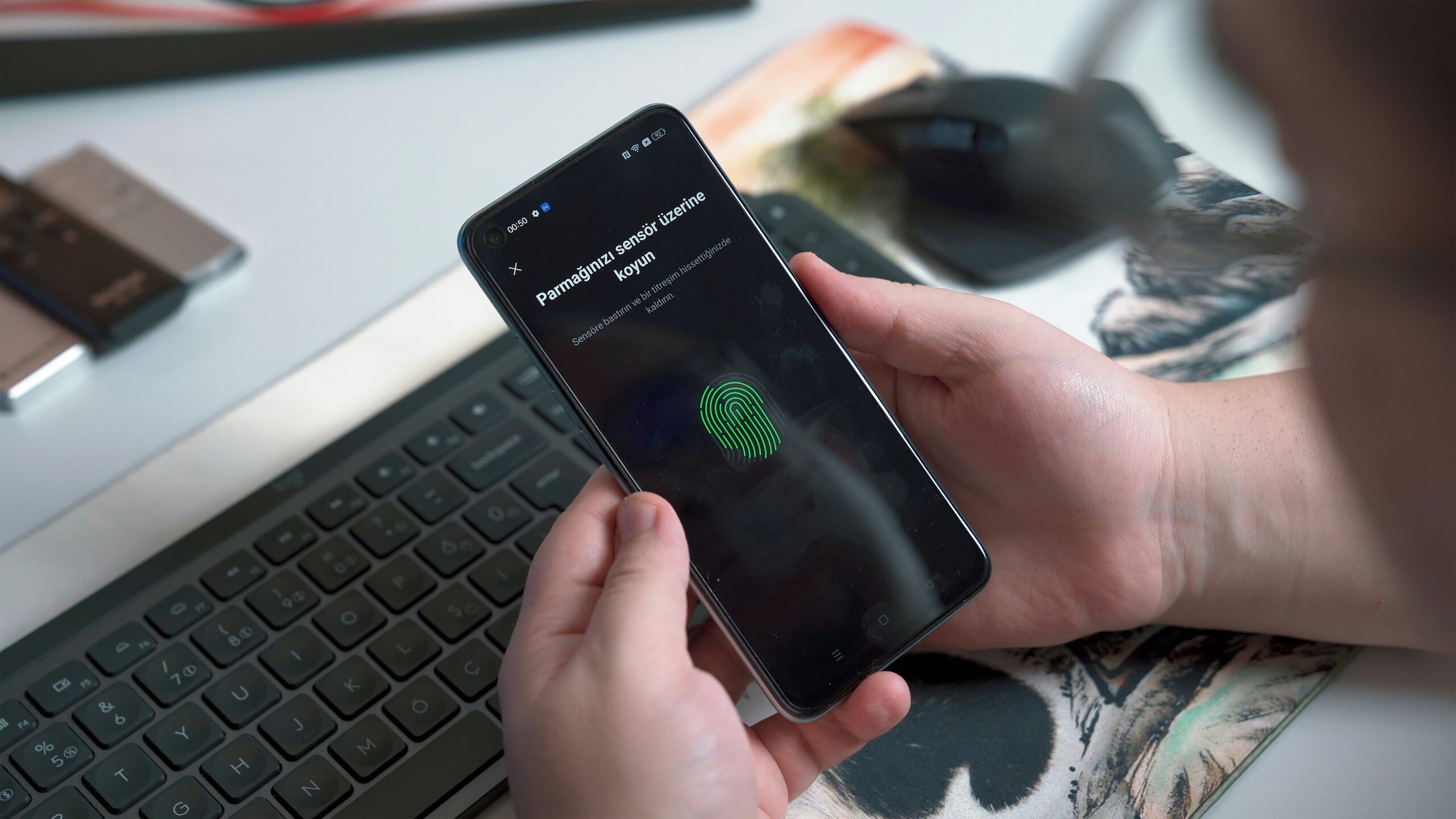Introduction to the Number 1-704-438-1385
In an age where phone communications are ubiquitous, it is increasingly vital for individuals to remain vigilant regarding unknown numbers. Among these numbers is 1-704-438-1385, which has raised questions among users about its legitimacy. With a growing number of reported phone scams, it is crucial to investigate the nature and intent of calls originating from unfamiliar numbers. Scammers frequently exploit unsuspecting individuals through deceptive practices, ranging from unsolicited marketing pitches to phishing attempts aimed at acquiring sensitive information.
As technology advances, so too do the tactics employed by fraudsters. The rise of robocalls and spoofing has made it challenging to discern legitimate callers from those with malicious intent. Consequently, calls from numbers such as 1-704-438-1385 warrant scrutiny. Potential recipients of calls from this number may experience uncertainty, concern, or even curiosity about the identity behind the line. Verifying the nature of such communications is not just a matter of personal safety but also a means to protect one’s privacy and finances.
Consequently, it is essential for individuals to adopt a proactive approach when managing unfamiliar phone numbers. Researching the number in question, seeking consumer reviews, or consulting databases that track phone scams can uncover valuable information regarding its legitimacy. This due diligence empowers individuals to differentiate between legitimate businesses and potential threats, ultimately enhancing their awareness in the digital landscape. Therefore, understanding numbers like 1-704-438-1385 is a necessary endeavor for anyone wishing to safeguard themselves from the perils of phone scams.
Overview of Phone Scams: Common Tactics Used
Phone scams have become increasingly sophisticated, often leveraging psychological tactics to deceive unsuspecting individuals. One common approach employed by scammers is impersonating legitimate businesses or officials. This might involve callers claiming to be from well-known companies, government agencies, or even banks. By mimicking these trusted entities, they aim to establish credibility and manipulate victims into providing sensitive information.
An additional tactic used frequently in phone scams is phishing for personal information. Scammers might pose as identity verification agents or representatives from organizations claiming that they need to confirm account details or other personal data. The callers often create a plausible narrative that convinces victims they are in a legitimate conversation. This strategy can lead to the unauthorized access of bank accounts, social security numbers, or other confidential information.
Creating a sense of urgency is another effective tactic that scammers employ. This may involve threats of legal action, emphasizing that immediate payment is required to avoid arrest, or warnings that an account is about to be closed. The emotional stress triggered by such claims can cloud judgment, prompting people to act hastily without verifying the call’s authenticity. More often than not, these masterminded schemes are aimed at instilling panic, thereby preventing victims from thinking critically about the situation.
Furthermore, phone scams can also manifest in the form of lottery winnings or prize notifications that require payment of a “processing fee.” Victims are often told that they have been selected or won something substantial, luring them to divulge personal banking information to “claim” their alleged rewards. Recognizing these tactics is essential for safeguarding against phone scams, as it equips individuals with the knowledge needed to distinguish between legitimate calls and potential threats.
Who Owns the Number 1-704-438-1385?
To determine the legitimacy of the phone number 1-704-438-1385, it is essential to investigate its ownership. One effective method for uncovering the identity behind a phone number is through reverse phone lookup services. These services are designed to provide information about the owner of the number in question, including their name, geographic location, and type of phone line. By utilizing these tools, you can gain insight into whether the number is associated with a reputable business, an individual, or if it may be part of a wider scam operation.
There are numerous reverse phone lookup options available online, ranging from free services to more comprehensive paid databases. Free services often yield limited information, potentially providing only the general location and whether the number is listed. In contrast, paid services tend to offer more detailed reports, which may include the owner’s full name, previous addresses, and additional contact information. When searching for the phone number 1-704-438-1385, consider using a reputable service that guarantees accurate and up-to-date information.
However, there are limitations to what reverse phone lookups can provide. In some cases, the number may belong to a company that operates under a trade or business name, obscuring the actual owner’s identity. Additionally, unlisted or private numbers might not yield results. Furthermore, the accuracy of the information can vary significantly across lookup services, as they aggregate data from different sources, some of which may not be reliable. As with any investigation, it is essential to approach the results from these services with a degree of caution. By piecing together available information and cross-referencing it with other data, you may form a clearer picture of the legitimacy of the number 1-704-438-1385.
Reported Experiences: Real User Feedback
In the quest to determine the legitimacy of 1-704-438-1385, one of the most insightful approaches is to examine the firsthand accounts of users who have interacted with this phone number. Feedback from various individuals offers a diverse perspective, revealing a mixture of both positive and negative experiences. This collective sentiment is crucial for anyone considering whether the calls from this number are trustworthy.
Several users have come forward with positive experiences, describing the calls as part of a legitimate service offering. Clients have reported receiving informative updates, regarding financial services and promotional offers, expressing satisfaction with the professionalism displayed during the interactions. One user highlighted their experience with customer service, stating that the representative was accommodating and addressed their queries effectively. Such feedback suggests that, for certain individuals, 1-704-438-1385 might indeed represent a genuine communication avenue.
On the other hand, a significant number of complaints have emerged on forums and complaint websites from users who did not share the same positive experience. Many reported unsolicited calls, with some labeling the number as a potential scam. Users expressed frustration over being contacted repeatedly despite requesting to be removed from the calling list. Concerns about the nature of the information solicited during these calls prompted accusations of misleading practices, raising alarms regarding the legitimacy of the number. Comments describing aggressive sales tactics further compound the mistrust, indicating that not all interactions are consistent in quality or intent.
In summary, the feedback surrounding 1-704-438-1385 presents a complex picture. While some users have had legitimate experiences, others have raised significant concerns over the integrity of the calls. This underscores the need for individuals to exercise caution and conduct thorough research when dealing with this phone number or similar entities.
What to Do if You Receive a Call from 1-704-438-1385
Receiving a call from an unfamiliar number such as 1-704-438-1385 can often be unsettling. It is important to approach the situation with caution. Before answering the call, consider researching the number online using various reverse phone lookup services. This preliminary step might provide insights regarding the legitimacy of the caller. Look out for patterns in reviews or comments from other individuals who have received calls from the same number.
If you decide to answer the call, do so with a guarded mindset. It is advisable to avoid sharing personal information, such as your full name, address, or financial details. Instead, remain polite but assertive, requesting the caller to identify themselves and the purpose of their call. If the conversation raises any red flags or if the caller sounds suspicious, it is perfectly acceptable to end the call.
For those who feel uneasy after receiving such calls, reporting the incident to the appropriate authorities can be a prudent step. You may contact your local consumer protection agency or the Federal Trade Commission (FTC) to relay your experience. Keep a record of the call details, including the date, time, and nature of the call, as these may be helpful for any investigations. Additionally, if the number appears to be persistent or harassing, consider blocking the number on your phone.
By taking these precautions, individuals can effectively safeguard themselves against potential scams or unwanted solicitations associated with numbers like 1-704-438-1385. Awareness and self-protection are key to navigating unsolicited communications in today’s digital age, allowing one to make informed decisions should they encounter unknown callers.
Legal Protections Against Scam Calls
In today’s increasingly interconnected world, scam calls have become a prevalent nuisance for many individuals. However, consumers have certain rights and legal protections established to combat these unwanted communications. One significant piece of legislation is the Telephone Consumer Protection Act (TCPA), enacted in 1991. This federal law restricts telemarketing calls, including those using automated dialing systems, artificial voices, or pre-recorded messages. Under the TCPA, consumers must provide explicit consent before receiving such calls, which means that if you encounter unsolicited calls from numbers like 1-704-438-1385, you may have legal recourse.
Additionally, the National Do Not Call Registry offers further protection for consumers. This initiative allows individuals to register their phone numbers to prevent unsolicited telemarketing calls. By registering on this list, calls from telemarketers, including potential scammers, are significantly reduced. It is important to note that while the registry does not cover all calls, especially those from political organizations, charities, or surveyors, it represents a substantial step in safeguarding consumer rights.
If you find yourself continually receiving unwanted calls, you may consider pursuing legal action against those who violate TCPA regulations. Consumers can file a lawsuit in cases of unwanted calls, potentially leading to financial compensation for damages incurred. Additionally, reporting suspicious numbers to the Federal Trade Commission (FTC) is crucial for tracking and taking action against fraudulent entities. By understanding these legal protections and taking proactive steps, individuals can confidently address unsolicited calls and minimize the risk of falling victim to scams.
Best Practices to Avoid Phone Scams
In today’s digital landscape, phone scams have become increasingly sophisticated, making it vital for individuals to employ effective strategies to protect themselves. One of the primary best practices is to refrain from sharing personal information over the phone unless you can verify the identity of the caller. Legitimate organizations rarely ask for sensitive details, such as bank account numbers or Social Security numbers, through unsolicited phone calls. If a caller requests such information, it is advisable to politely decline and hang up.
Verifying the identity of callers is another crucial step. If you receive a call from an unfamiliar number, including potentially suspicious ones like 1-704-438-1385, take the time to research the organization or follow up with them through an official channel to confirm the request’s legitimacy. Most reputable companies offer contact numbers on their official websites, allowing you to independently initiate communication.
Utilizing call screening features can significantly mitigate the risk of falling victim to phone scams. Many smartphones are equipped with built-in options, or users can download third-party applications that help identify and block unwanted calls. These tools can flag known scam numbers and, in turn, provide users with peace of mind regarding dubious calls.
Remaining skeptical of unsolicited offers is an essential mindset to adopt. Scammers often present enticing deals or alarming news to elicit immediate reactions from their targets. Always take a moment to assess the situation before taking any action. High-pressure tactics such as urgent deadlines to act can often indicate a scam. Trust your instincts; if something seems too good to be true, it often is.
By following these best practices, individuals will be better equipped to navigate potential phone scams and protect their personal information from malicious actors effectively.
When to Seek Help from Authorities
Deciding when to involve authorities regarding suspicious activities related to 1-704-438-1385 can be a crucial step in protecting oneself from potential scams. Recognizing the signs of a scam is the first step toward seeking help. Common indicators of fraudulent behavior include unsolicited phone calls that pressure you to provide personal information, requests for payment through unconventional methods, such as gift cards, and claims of urgency that suggest immediate action is necessary.
If you suspect that you have fallen victim to a scam involving the number 1-704-438-1385 or any similar solicitation, it is important to take immediate action. Start by documenting all relevant details of the interaction, including the date, time, and nature of the correspondence, as well as any names or company information provided. This information will be valuable when reporting the incident.
The next step is to report your concerns to the appropriate authorities. The Federal Trade Commission (FTC) is a federal agency that works to combat deceptive practices. By reporting to the FTC, you contribute to a larger effort to track and prevent fraudulent activities. Depending on the nature of the scam, local law enforcement may also be a suitable avenue for reporting. They can provide additional guidance and may even be able to initiate an investigation into the matter.
Furthermore, consider sharing your experience with community groups or via social media. Public awareness plays a vital role in reducing scams’ effectiveness, as informed individuals are less likely to fall prey to predatory practices. Utilizing platforms designed for consumer protection can also help others stay cautious when approached by similar numbers such as 1-704-438-1385. Staying vigilant and informed empowers individuals to take action and safeguard their personal and financial information.
Conclusion: Making Informed Choices
As we navigate the complex landscape of phone communications, it is crucial to remain vigilant and informed. The number 1-704-438-1385 has come under scrutiny, raising concerns about its legitimacy and potential association with fraudulent activities. Through the examination of user experiences and investigative resources, it becomes evident that thorough research is essential before engaging with unknown callers. Readers are encouraged to utilize resources available, such as caller ID services and community forums, to gather insights about potentially suspicious numbers.
In assessing whether 1-704-438-1385 is a legitimate contact or a potential scam, individuals must weigh various factors, including reporting from fellow users, official warnings from consumer protection agencies, and the contextual background of the call. The importance of skepticism cannot be overstated when receiving unsolicited calls from unknown numbers. Understanding the patterns of common scams, the red flags to watch for, and the steps to report suspicious activity can significantly empower consumers to make safe choices.
Education plays a pivotal role in protecting oneself from scams. Continuous awareness of new tactics employed by fraudsters can aid individuals in recognizing deceptive practices. By staying informed about the nature of various threats, one can distinguish between authentic communications and those that pose risks. It is vital for individuals to take proactive measures by keeping abreast of developments in phone scam prevention. Ultimately, by applying due diligence and trusting one’s instincts, individuals can navigate the complexities of unsolicited contacts with increased confidence and safety.

We share information about current trends and stories of people all around the world.



